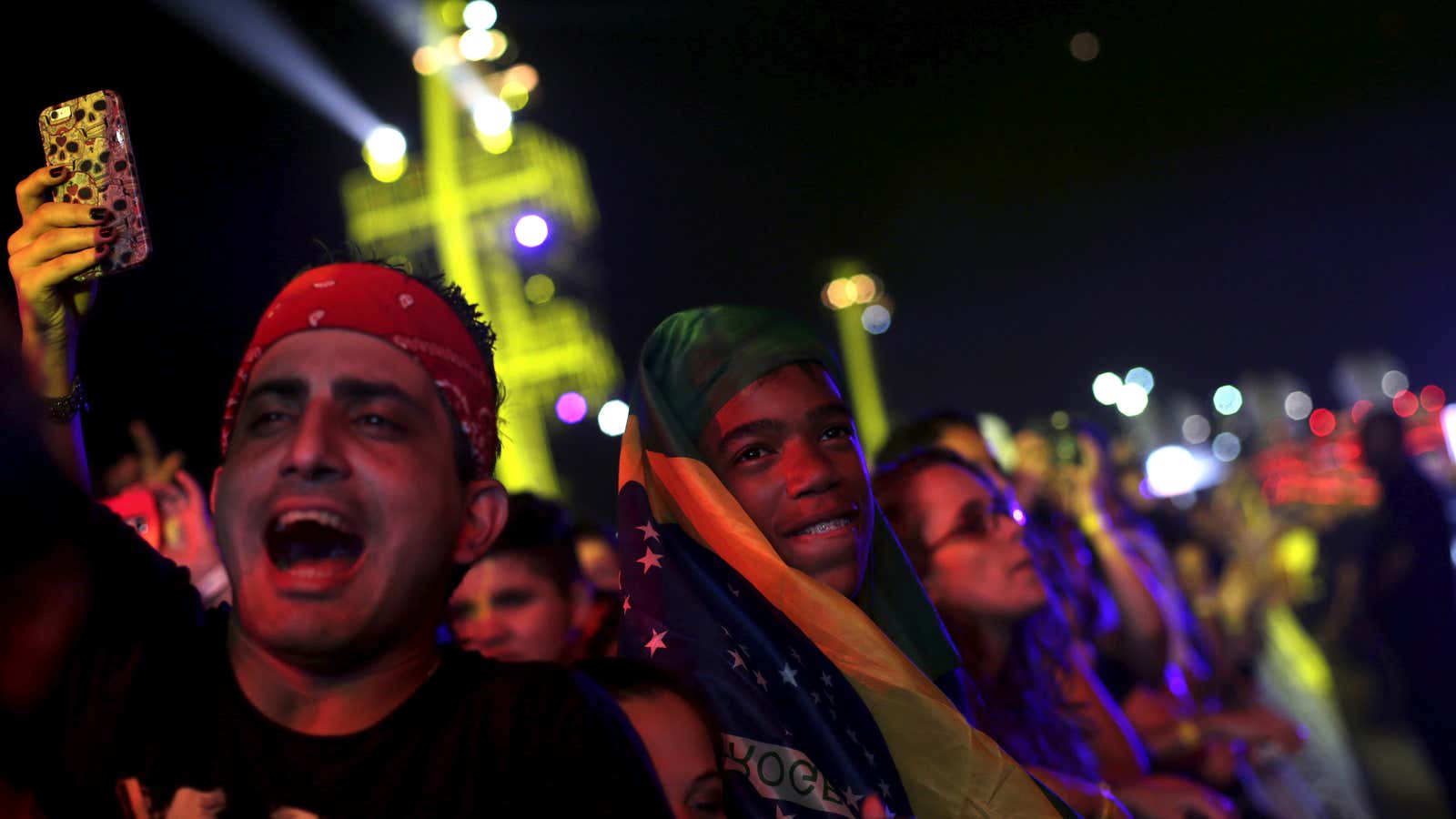Rejoice, music consumers: A golden age is upon us. The rise of streaming services allows people to play an unprecedented amount of music, immediately, for flat monthly fees that cost less than a single CD did 15 years ago. Hard not to call that an excellent deal.
From a musician’s perspective, however, things are decidedly less blissful. The cheap, uniform accessibility of music means that modern artists have more competition for listeners than ever before. They’re also paid far less per stream than they made in the heyday of physical albums, or even digital downloads.
By necessity, the over-availability of music has changed the way listeners behave. The average consumer no longer sticks loyally to his or her favorite bands; most people who use streaming services have dozens, hundreds, or even thousands of artists in their libraries.
“There’s a big shift in what fans have come to expect,” says Straith Schreder, head of creative initiatives at file-sharing company BitTorrent. “What has worked for so many years is not working now. There’s a need to experiment.”
Many artists are experimenting with how and what they produce, but the savviest among them are also changing up how they relate to the people for whom they exist.
Friends, not fans!
At most live concerts, it’s etiquette for musicians to trot out the same two lines: “Thank you so much” and “We couldn’t have done it without you—the fans.”
That’s more true now than ever. For new musicians to stand out in the digital age, they must have a sizable and devoted fanbase—a group of people who feel not just fondness for, but a genuine kinship with them. That’s why so many musicians, even those who have already made it big, are cultivating a presence on social media platforms like Instagram and Snapchat, and even begging for listeners’ contact information.
“Right now, you listen to something and it feels like you’ve hit a dead end,” says Ethan Diamond, CEO of online music store Bandcamp. “What do you do next? What’s the way to become a fan, and not just a passive listener?”
Even though hitting a dead end has long been the way of popular music—it’s hard to imagine the Rolling Stones trolling for fans’ addresses—platforms like BitTorrent and Bandcamp are offering a solution to this problem: spaces where artists and fans can interact directly.
On BitTorrent, musicians can emails their listeners news and updates. Bandcamp has a similar feature, which allows artists to send individual thank-yous or other messages to people who buy their music. Both also provide artists with detailed statistics on their consumers. (Bigger music companies like Apple and Spotify are far more stingy about handing over this data.)
“The artists on Bandcamp are all in different genres, but they’re united by a common thread: They’re constantly hustling online,” Diamond says. In other words, artists have little choice but to sacrifice their mystique for intimate relationships with their listeners.
“Walls are breaking down in every other aspect [of media] right now, and also here—artists, too, are brands,” says BitTorrent’s Schreder.
Elusive rock star glam is dead
Many of today’s biggest pop stars—Taylor Swift, Kanye West, Lady Gaga—have outsized internet presences. They are constantly flooding the web with personal musings, selfies, and clique shots. Even Radiohead, known for its tetchy relationship with the internet, knows how exactly how to make an online splash.
“There are very few artists now who can get away with being brooding and distant,” Diamond says, adding that most of the artists he meets are hungry for all the data they can get. In a world where digital streaming has thoroughly fragmented the artist-fan relationship, artists are eager to take back control.
For some, that means taking special initiative. Ryan Leslie, a rapper and producer, is currently working on an app called SuperPhone, which lets musicians (or anyone, really) contact custom groups. A band, for example, might promote a new album release to its million-strong fanbase, and then an underground show to a smaller group of its most devoted followers. Each message blast comes through to fans as a personal text.
“Fan clubs and email lists are way 2000s,” Leslie says. “Music is ripe for loyalty programs.”
Startups like SuperPhone face stiff competition in this space, as the mainstream music industry starts to perk up. At the Cannes Lions advertising festival last week, Spotify CEO Daniel Ek hinted at platform updates aimed at connecting musicians and listeners.
To be sure, this new normal may be hard for some artists, particularly those keen on maintaining their privacy, or those uncomfortable with shameless self-promotion. But industry experts say artists who don’t show their listeners special attention have little chance of success. After all, if Paul McCartney can personally reply to fan mail, indie newcomers can certainly give it a shot.
